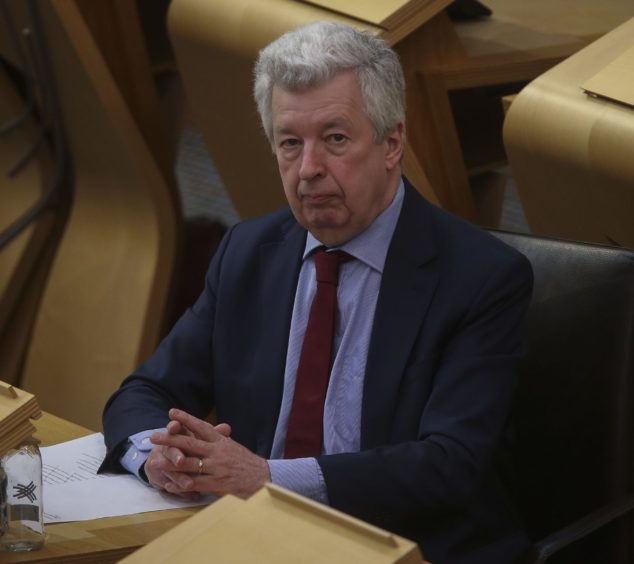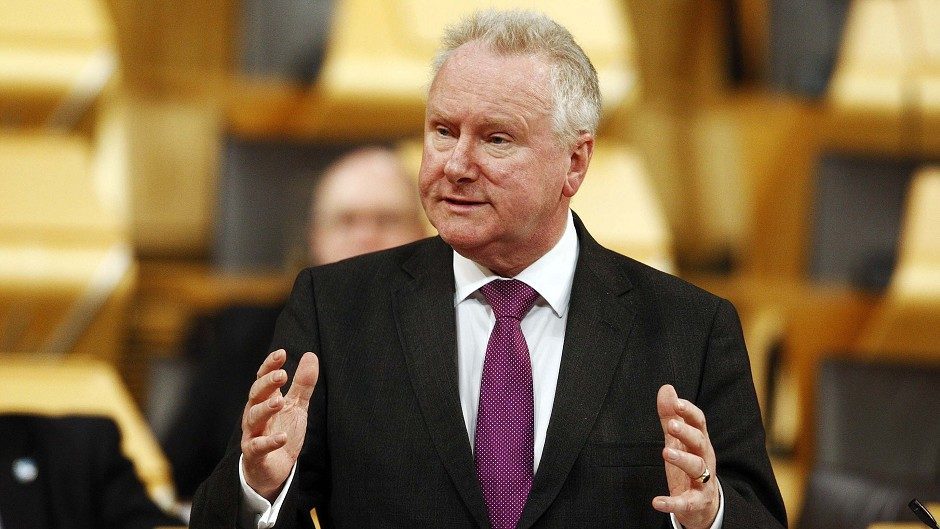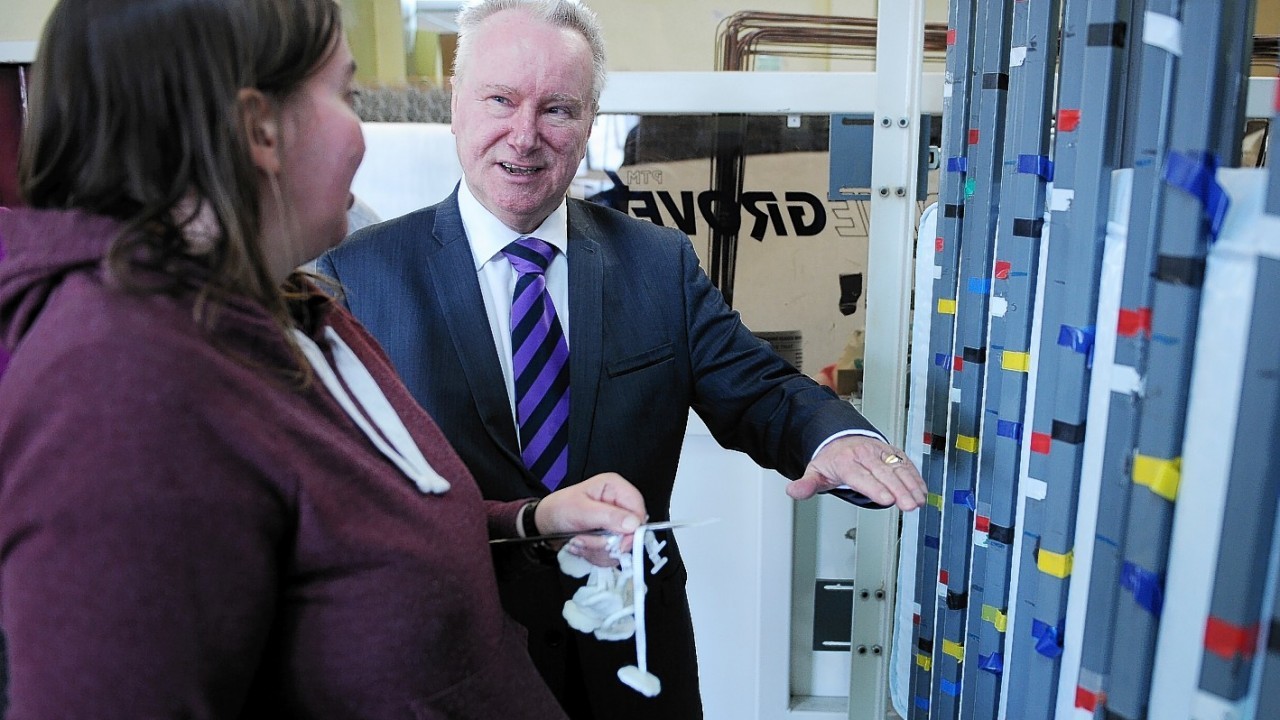Launching a new public health agency in the middle of the gravest public health crisis in memory was not what had been envisaged.
For the best part of a decade, NHS, Scottish Government and council officials had been working behind the scenes on the long programme of reform that eventually led to the belated creation of Public Health Scotland (PHS) last month, on April 1.
But despite the meticulous planning and countless reviews, reports, seminars and training workshops over the years, they could never have anticipated that the birth of the organisation would coincide with a health emergency as dire as Covid-19.
“You could call it a baptism of fire,” said Lewis Macdonald, a north-east Labour MSP and convener of the Scottish Parliament’s health and sport committee.
“If you wanted to start a new organisation in any field and you find that the day you were starting it you were already in your first crisis, that would be a challenge.
“But you also learn very quickly about what you’ve got right, what you’ve got to improve.
“Hopefully one of the consequences of all this is that agencies like Public Health Scotland, having started life in the middle of a pandemic, hopefully that means that forever more it will take pandemic threats and risks seriously, rather than just something that might just happen at some future point.”
Jointly accountable to the Scottish Government and the Convention of Scottish Local Authorities (Cosla), PHS employs 1,100 staff and has a budget this year of £71 million.
It incorporates the previous functions of Health Protection Scotland and Information Services Division together with NHS Health Scotland.
Established to help tackle health inequalities and preventable disease, the organisation has had to quickly shift focus to lead the response to the coronavirus outbreak, including publishing a weekly statistical report, from Wednesday.
Ed Humpherson, director general for regulation at the UK Statistics Authority, struck a sympathetic tone as he formally welcomed the creation of PHS in an email on April 1.
“As the largest producer of official statistics about health services and population health in Scotland, you have been faced with preparing for this day under the most challenging set of circumstances imaginable,” he wrote.
“You will no doubt have difficult decisions to make in the coming weeks and months as the impact of the pandemic on your statistical releases unfolds.”
Although a pandemic had long been at the top of the UK’s risk register, the public health reform agenda in Scotland had been focused on efforts to prevent ill health linked to poverty and lifestyle.
Understandably, given the circumstances, there was little fanfare to herald the official launch of PHS on April 1.
But it was the culmination of much work and an arduous journey that many believe took too long.
SNP MSP Alex Neil, who was health secretary during the early stages of the programme between 2012 and 2014, said: “It shouldn’t have been such a big job (to get PHS up and running) and it shouldn’t have taken as long because, quite frankly, we already had a lot of the resources in place under the 14 health boards in Scotland.
“So I’m disappointed by how long it has taken, but I think it is the right thing to do – to bring public health effectively into a national agency.”
In 2011 the Christie Commission had called for radical change to the design and delivery of public services to tackle Scotland’s deep-rooted social problems.
It was followed in 2012 by Audit Scotland’s report on health inequalities, and in 2013 by NHS Health Scotland’s health inequalities policy review, both of which recommended a clearer focus on public health.
In 2013 the Scottish Government published Equally Well on the same topic, and then Scottish ministers announced in November 2014 that they had asked for a review of the future of public health in Scotland.
It reported in 2016 and by December of that year a delivery plan was produced, including a commitment “to deliver a new public health body”.
The Scottish Government and council body Cosla then established a public health reform programme in 2017, and in 2018 a set of priorities was agreed.
A target was set to have PHS up and running by 2019; it was then pushed back to April 1, 2020.

Mr Neil explained his thinking when the reform agenda was gathering pace.
“I commissioned the review that led to the creation of Public Health Scotland about six years ago because I felt that public health was getting subsumed within the health boards, and they needed a higher profile,” he said.
“Because essentially what it is about is prevention of disease and I felt we weren’t putting enough emphasis and giving enough money to prevention.
“At the end of the day, I don’t think we will solve the health gap until we solve the poverty issue, but I felt we could be making a bigger contribution in preventing ill health and running more programmes which would help, particularly poorer people, avoid some of the worst aspects of ill health and disease.”
The Airdrie and Shotts MSP hopes PHS could get back to its original mission after the pandemic had passed.
“Until we get either an antiviral drug that works or a vaccine that works, then clearly the number one priority of the whole health service is going to be to deal with the pandemic,” he said.
“That’s unavoidable now because so much depends now on bringing this virus under control.
“Public Health Scotland is no exception to that, and its overriding aim must be, in the short-term, to play its part in controlling this virus.
“Thereafter, as time goes on, it can revert to the initial intention, which was to play a much bigger role in the prevention of day-to-day illnesses and diseases, the ones that can be prevented, with better diet, stopping smoking, addiction to drink and drugs and things of that nature.”

PHS chief executive Angela Leitch said its aim is to protect and improve the health and wellbeing of the people of Scotland.
“We took up this challenge against the backdrop of an unprecedented public health emergency and we are playing a significant part in the country’s response to the Covid-19 pandemic,” she said.
“While Covid-19 is our key priority, we are also working on the public health challenges that prompted the establishment of the new organisation as well as those that are likely to result from the necessary measures we have had to take as a country.
“We are working constructively with our key partners to identify and deliver effective responses to the current critical situation and plan for recovery.”




